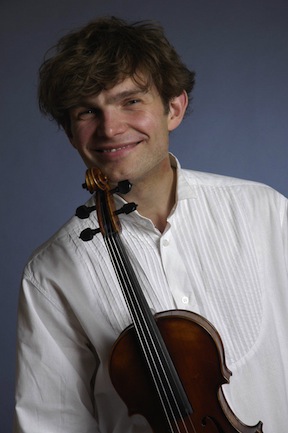
Polish violinist Stefan Plewniak is so hip he has even joined a group of friends in a band that uses instruments repurposed from household recycling. But his real passion is in finding ways to make baroque-era music relevant to a new generation.
- Classical Music 101: What Does A Conductor Do? - June 17, 2019
- Classical Music 101 | What Does Period Instrument Mean? - May 6, 2019
- CLASSICAL MUSIC 101 | What Does It Mean To Be In Tune? - April 23, 2019
Two years ago, at the ripe age of 28, Plewniak was beginning to tire of the freelance musician’s life, criss-crossing Europe with different period-performance ensembles. So he created his own: Il giardino d’amore (the garden of love).
The ensemble’s historically-informed members are friends and colleagues he picked up during his peripatetic years. And now they’re on their own tour, making their Canadian début with Mooredale Concerts on Sunday afternoon at University of Toronto’s Walter Hall.
They may be young individually as well as a group, but the quality of their musicmaking is excellent. Although the core of their focus is 17th century Italy, the ensemble sounds equally at home in French, German and English repertoire.
One of the ensemble’s main attractions is Plewniak’s wife, soprano Natalia Kawalek, who has the ideal pure, lyric voice for this music.
According to Plewniak, the group was born when he was approached by organisers of a Bach festival in his hometown of Krakow to put together a small ensemble for a programme of Bach concertos. With a wide circle of period-performance acquaintances gathered from work with Jordi Savall’s Le concert des nations and William Christie’s Les Arts florissants, among others, the violinist had no trouble surrounding himself with fellow young baroque-music enthusiasts.
The Krakow experience was so satisfying that they have stuck together, with Plewniak as leader.

“It takes such a long time to arrive at what to play and what seems good with your ensemble,” he confesses. He says he enjoys diving into library collections during his travels in order to find new material. “I spend a third of my life looking through Bible texts,” he adds. “There are so many books and scores, it’s a passion.”
Plewniak believes that the secret to engaging an audience is to bring a mix of different works to a programme — all connected by some sort of common thread.
For next season, for example, he has assembled a concert centred around Rome in the baroque era, and another one that lays out the juxtaposition of Polish and Turkish music during its collaboration with the Ottoman empire.
He’s only 30 now, so I suggest he has lots of time to build new repertoire. “But I want to do everything fast,” he replies. “And everything takes so much time.”
On his wish list is growing the ensemble so that they can perform more French music and perhaps even take on some opera one day.
If there’s one thing that distinguishes Il giardino d’amore from other upstart baroque ensembles, it’s how they keep youthful exuberance in proportion.
Plewniak explains how he studied in Paris with teachers from the Dutch school, which is all about simple purity and faithfulness to the original score. He then apprenticed at the hands of Jordi Savall, whom the violinist describes as more of an enabler than a leader.
“My experience with Savall was amazing,” he recalls. “Each musician had freedom to express himself. It united a group of people who were expressing their emotions and, in the end, would get this huge, fantastic sound.”
Many younger period musicians — especially in Italy — have been pushing this sort of no-hold-barred sound. Plewniak pulls back a bit, not turning his back completely on his Dutch masters.
“In Holland, everyone works so hard,” Plewniak observes. “In Italy people are enjoying life and expressing emotions.” In his hybrid world, “Music is the product of hard work and enjoying emotions.”
With the artistic balance set, he says, “the trick is to find not just good musicians but good musicians who can stick together.”
They’re well on their way.
Here’s a sample of Kawalek and the ensemble in some music by Alessandro Scarlatti:
+++
For more details on Sunday’s concert, click here.
John Terauds
- Classical Music 101: What Does A Conductor Do? - June 17, 2019
- Classical Music 101 | What Does Period Instrument Mean? - May 6, 2019
- CLASSICAL MUSIC 101 | What Does It Mean To Be In Tune? - April 23, 2019



